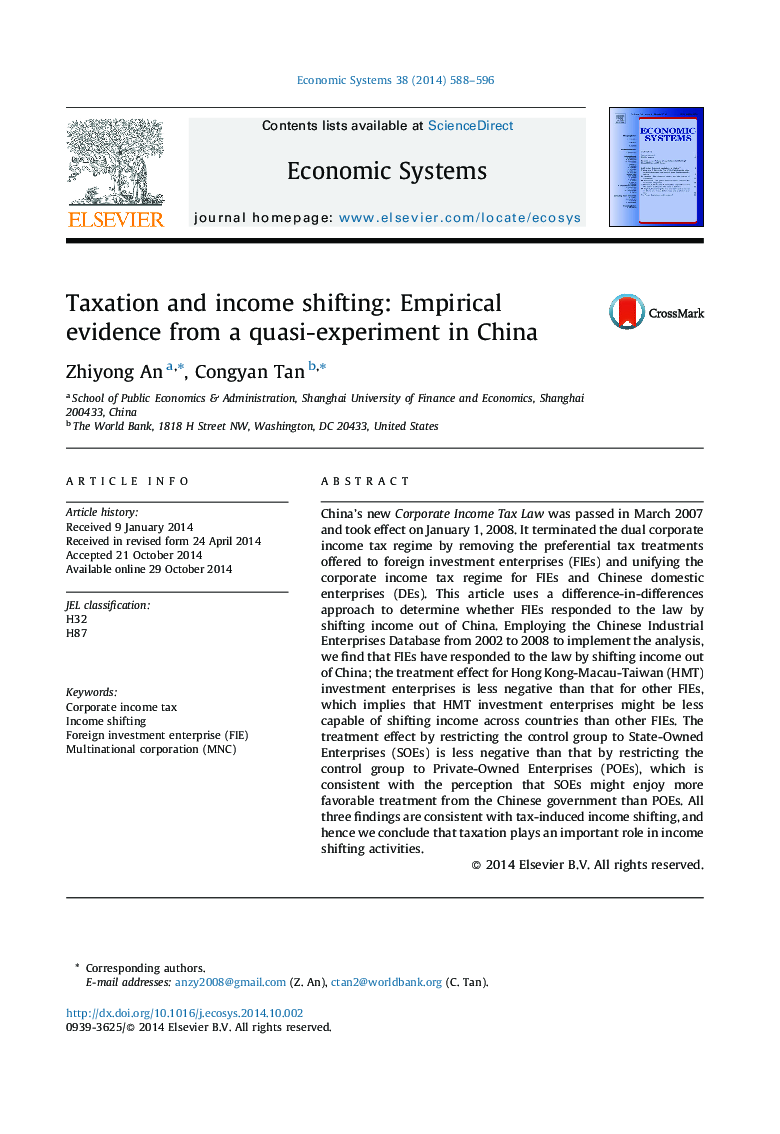| Article ID | Journal | Published Year | Pages | File Type |
|---|---|---|---|---|
| 5056488 | Economic Systems | 2014 | 9 Pages |
Abstract
China's new Corporate Income Tax Law was passed in March 2007 and took effect on January 1, 2008. It terminated the dual corporate income tax regime by removing the preferential tax treatments offered to foreign investment enterprises (FIEs) and unifying the corporate income tax regime for FIEs and Chinese domestic enterprises (DEs). This article uses a difference-in-differences approach to determine whether FIEs responded to the law by shifting income out of China. Employing the Chinese Industrial Enterprises Database from 2002 to 2008 to implement the analysis, we find that FIEs have responded to the law by shifting income out of China; the treatment effect for Hong Kong-Macau-Taiwan (HMT) investment enterprises is less negative than that for other FIEs, which implies that HMT investment enterprises might be less capable of shifting income across countries than other FIEs. The treatment effect by restricting the control group to State-Owned Enterprises (SOEs) is less negative than that by restricting the control group to Private-Owned Enterprises (POEs), which is consistent with the perception that SOEs might enjoy more favorable treatment from the Chinese government than POEs. All three findings are consistent with tax-induced income shifting, and hence we conclude that taxation plays an important role in income shifting activities.
Related Topics
Social Sciences and Humanities
Economics, Econometrics and Finance
Economics and Econometrics
Authors
Zhiyong An, Congyan Tan,
